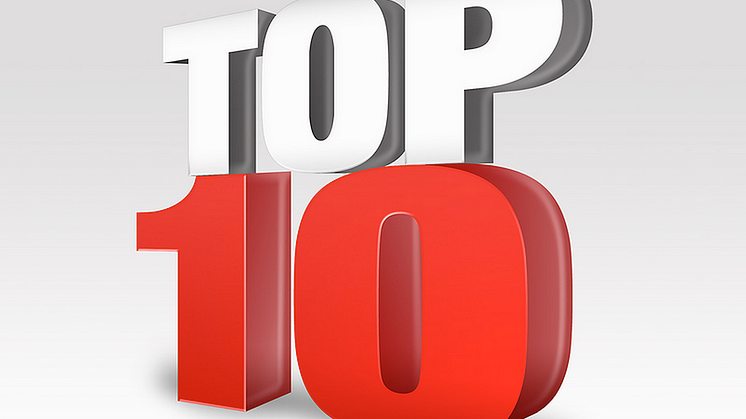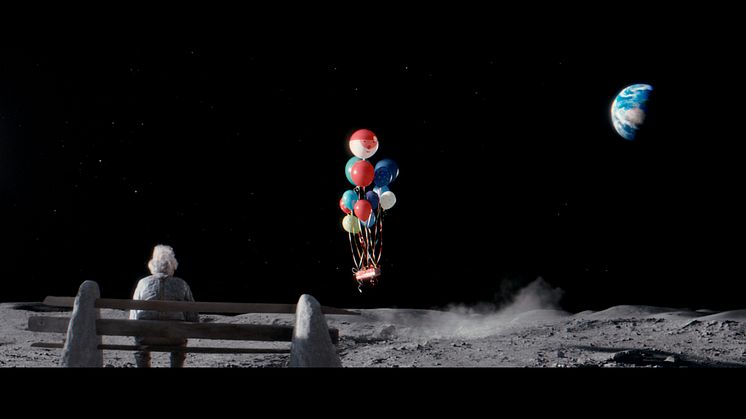
Blog post -
When it comes to brand storytelling, do we want the truth or an attractive fiction?
So you want your brand’s content to get millions of views, likes and shares?
Well, you know what to do. Simply commission an acoustic rework of a tear-jerking ballad and… tell a story.
It worked to the tune of 13 million views and a Cannes PR Grand Prix for Chipotle’s The Scarecrow.
And as I write this, in the UK, John Lewis’s #montythepenguin - on 17 million views - is battling it out with Sainsbury’s Word War I “true” story - on 12 million views - for the title of top Christmas “brand story”.
For the past six years, John Lewis have been admired for their festive tales ( here’s a brief recap) - a reputation they largely owe to their agency adam&eveDDB, who really hit the big time in 2010 with the phenomenal Always a Woman ad (despite suggestions that the concept was not entirely original).
That ad - which masterfully condenses an entire life story into 90 seconds - has been watched 1 million times on YouTube, but this now seems like small fry compared to the most recent YouTube brand blockbusters. You can attribute that to the continued growth of social media and, in particular, the way Facebook, Twitter, et al, have redesigned the timeline to maximise the impact of video content.
So storytelling works.
This was the message from Ketchum London’s CEO Denise Kaufmann speaking at PR Moment’s Storytelling event in London on 20 November 2014.
Apart from Monty the Penguin, Denise highlighted the Rainforest Alliance’s #followthefrog viral video as an example of brilliant storytelling that speaks directly to the viewer.
Denise made the point that, while emotion is key in storytelling (you absolutely have to make people care), the most vital requirement of all is messaging. Just as Nike’s “Just Do It” messaging ran through all of their communications for years, so John Lewis and Chipotle make sure there is a consistent message at the heart of their stories (“we are always there for your family”, “our food is ethical and wholesome”).
Apart from emotion and a consistent brand message, there is another vital element in getting brand stories to resonate: authenticity.
If the story you tell doesn’t fit the truth of your product, people and values, it will be unlikely to work.
Even so, the stories from John Lewis, Chipotle and the Rainforest Alliance are from the land of make believe. They are more brand fiction, than brand fact
The mobile network Three is a challenger brand, and Hugh Davies, their corporate affairs director, told the PR Moment audience that their strategy is to “go with the zeitgeist”, to ride the wave of frivolous social media content, embodied by their highly successful #DancePonyDance viral video (over 9 million YouTube views).
This campaign, and another campaign around the social media meme of “braggies” (pictures that your friends share on social networks of themselves having an annoyingly good time to make you jealous), are both designed to position Three as a network for the new generation of bandwidth-hungry social media oversharers.
Three’s “stories”, while certainly tending towards the wacky, are true to the behaviours of their target audience and the strengths of their service. In this sense, they are authentic.
Is storytelling always the answer?
According to Dave Stevens, marketing director at British Land, our eyes take in an average of 1 megabyte of information every second. We instinctively love stories - they generate higher levels of oxytocin in the brain - and they cut through the noise in a way that logic and analysis cannot.
But - in spite of all this - Dave is worried that marketers are falling in love with stories a little too much. He told the seminar audience that this event was one of 12 conferences on the topic of “storytelling” in London in November alone. Too much hype? Dave thinks so.
As he sees it, storytelling is an important tool, but there are risks to basing your entire comms strategy around storytelling:
First, it can encourage you to start with the teller not the listener. Who cares about your brand story? Storytelling can be too broadcast. Too one-way.
Second, storytelling is not a strategy. Marketing only has a purpose when there is a clear strategy.
Third, there is a risk that corporate storytellers start to believe their own stories. The narrative can take root internally, which causes a problem. A good story has a defined ending, but business is always about change. We don’t know how it will end, or even which direction the plot will turn.
Fourth, there is a danger when brands link their story to a real individual. Think Steve Jobs at Apple. When the person is gone (or if their own reputation takes a turn for the worse) the brand can struggle to tell a new story.
Finally, Dave Stevens thinks that storytelling “can belittle the marketing profession”. Storytelling makes people think anyone can do marcoms. He argues that in reality marketing is much harder than telling a simple brand story.
Storytelling is a powerful technique, but not a replacement for a robust and holistic communications strategy.
As much as marketers and communicators preach authenticity, many of the stories grabbing the limelight seem to be more about creative storytelling than the true stories of the brands or their customers.
So although most of us are trying to tell better stories, what kind of storytellers do we want to be?






